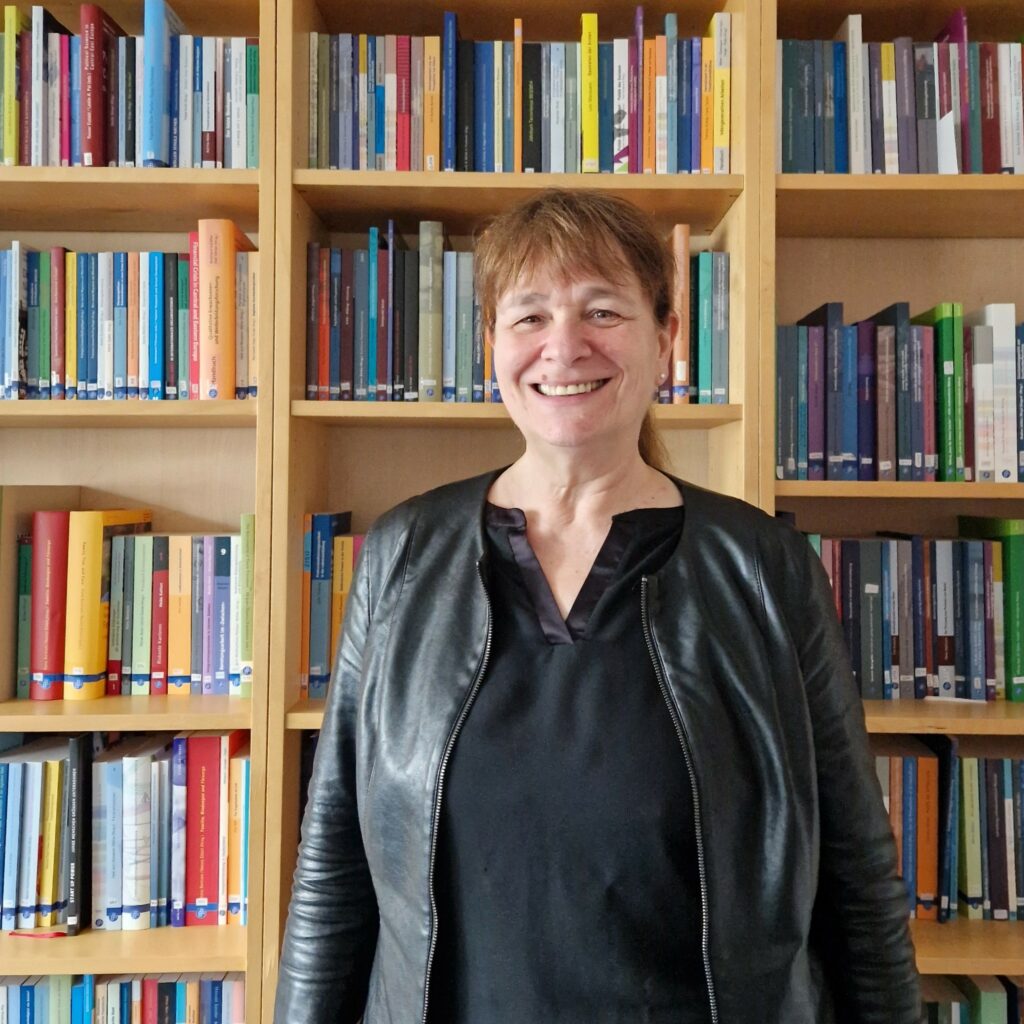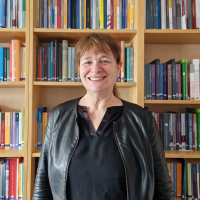Information about ORCID for Authors in the Social Sciences and Education
 If you are an academic working in the social sciences or education, ORCID is the tool of choice for establishing a clear academic identity and benefitting from its many advantages.
If you are an academic working in the social sciences or education, ORCID is the tool of choice for establishing a clear academic identity and benefitting from its many advantages.
– Barbara Budrich
ORCID iD: Your Digital Fingerprint – Unique Identification as a Scholar
Benefits: Increased visibility, independent publication management
ORCID vs. ISNI: ORCID is the standard in academia, relevant for DFG and others. ISNI is an international identifier for creatives.
Easy registration: Simple setup of an ORCID profile for a lasting scholarly identity
Budrich integrates ORCID: ORCID requested for publications to ensure accurate attribution. We’ve been doing this for years, but ORCID is becoming increasingly important.
Introduction
In the academic world, where publish or perish still applies, the clear identification of authors is crucial.
Similar names, changing positions, and international collaborations can make it difficult to assign publications accurately. This is where ORCID (Open Researcher and Contributor ID) comes into play – a digital fingerprint that uniquely identifies you as an author and offers numerous benefits. Below, we explain why ORCID is essential for you as a scholar in the social sciences and education.
What is ORCID and why is it important?
ORCID is a persistent numeric identifier that clearly links researchers to their research activities, publications, and awards. Think of it as a digital academic record that accompanies you throughout your scholarly career – regardless of your current role or field of research.
The Benefits of ORCID at a Glance
- Clear and lasting attribution of authorship: ORCID ensures unambiguous author identification and prevents confusion – especially with common names. This enables correct attribution of your publications throughout your academic career. Imagine sharing your name with others in your field – ORCID ensures your work is always attributed to you.
- Minimal effort, big impact: Registering with ORCID is easy and requires little time. Just visit the ORCID website and set up your profile in a few steps.
- Independent of employment and personal websites: ORCID provides a long-term, institution-independent way to manage your publication history. Your ORCID stays with you, even if you change jobs or stop updating your personal website.
- Facilitates application processes: Funding bodies like the DFG (German Research Foundation) integrate ORCID into their systems, simplifying application procedures. Since 2019, the DFG has officially supported author registration with ORCID.
- Global standard and policy relevance: ORCID is an internationally recognised standard for author identification, recommended or required by academic policy bodies and publishers.
- Links your name to your work, institutions, and awards: ORCID reliably connects your name to your publications, affiliations, and achievements.
- Automatic syncing with institutional systems: Your publication output can be transferred directly, automatically, and in real time to your institution’s records.
- Saves time: ORCID reduces the effort of entering publication data with the motto “Enter once, reuse often.”
- Control over metadata: Authors retain full control over how their metadata is presented and used.
- Increased visibility: ORCID increases the visibility and discoverability of your scholarly contributions.
- Permanent digital name: ORCID is a lifelong digital identifier, reportedly used in over 550 systems according to the consortium.
- Data protection: Since ORCID primarily stores publication data, no extensive data protection requirements apply. You control what information you make public in your profile. Even in times of growing concern about academic freedom, ORCID poses no risk.
- Recommendation from the German National Library: The German National Library values the use of ORCID (or ISNI) to clearly attribute authors and works in library and trade catalogues. This supports long-term archiving and discoverability.
- Integration at Budrich: At Budrich, we request your ORCID when collecting core data for book publications. For journals, we ask for it as part of the publication process, alongside other key author and article information. This ensures your work is accurately attributed.
ORCID vs. ISNI: What’s the Difference?
In addition to the internationally used ORCID, there is ISNI (International Standard Name Identifier), another standard identifier for authors. While ORCID and ISNI serve the same basic purpose, there are important differences for academics:
- Focus: ORCID is relevant within the academic system and used by organisations like the DFG. ISNI, while widespread in the creative industries, offers no added value for academia.
- Combination: It is possible to have both an ISNI and an ORCID – for example, if you are also active outside academia as a creative professional (e.g. a novelist or musician).
- Control: Only you can create your own ORCID. An ISNI, however, can under certain conditions be created by third parties on your behalf.
- Automatic publication lists: Publications tagged with ORCID can often be added automatically to your publication list (depending on the system), whereas this is not the case with ISNI.
In short: If you are an academic in the social sciences or education, ORCID is the best tool to clearly establish your scholarly identity and benefit from its many advantages.
“How do I register with ORCID?”
Registration is simple and free of charge:
- Visit the ORCID website.
- Click on “Register” and follow the instructions.
- Complete your profile.
- Link your publications and research activities to your ORCID profile.
“How do I provide my ORCID iD to Budrich?”
You can share your ORCID with us during the publication process. Depending on the type of publication or your role, the following are the easiest ways to do so:
Monographs
As the author (or team of authors) of a monograph, you are usually in regular contact with the publisher. We normally send you a questionnaire during contract preparation – please provide your ORCID in this form.
Edited volumes and journal articles
In the case of edited volumes, the editors are usually the main contact with the publisher. The same process applies as for monograph authors.
We ask for the ORCID iDs of individual contributors to edited volumes shortly before publication, along with other author details. The same applies to journal articles – we collect this information shortly before the issue is published.
Want to share your ORCID for already published work?
Of course, we can also add your ORCID to our database retrospectively; however, this does not always enable automatic linking to previously published work. Please include the title(s) of your publication(s), and for journal articles or book chapters, also the name of the journal or edited volume.
Conclusion
ORCID is an essential tool for all scholars who wish to establish a clear academic identity, increase their visibility, and benefit from a range of advantages. Register today and make it easier to link your work to your name!
You would like to know more?
Please feel free to contact Sarafina Yamoah at Verlag Barbara Budrich for further information.
Sources
DFG
German National Library
ORCID website
ORCID Germany Consortium
Editorial note: The AI Merlin supported the creation of this blog post, the AI ChatGPT the translation from German.
The Author
 Barbara Budrich worked for over ten years at Leske + Budrich, her father’s publishing house, before founding Verlag Barbara Budrich in 2004. She has published, translated, and authored numerous books and articles. Since 2012, she and her team have shared their expertise in academic publishing and writing through talks, workshops, and coaching via her company, budrich training.
Barbara Budrich worked for over ten years at Leske + Budrich, her father’s publishing house, before founding Verlag Barbara Budrich in 2004. She has published, translated, and authored numerous books and articles. Since 2012, she and her team have shared their expertise in academic publishing and writing through talks, workshops, and coaching via her company, budrich training.
Photo Barbara Budrich: private | Header image: unsplash.com | Rei Yamazaki

